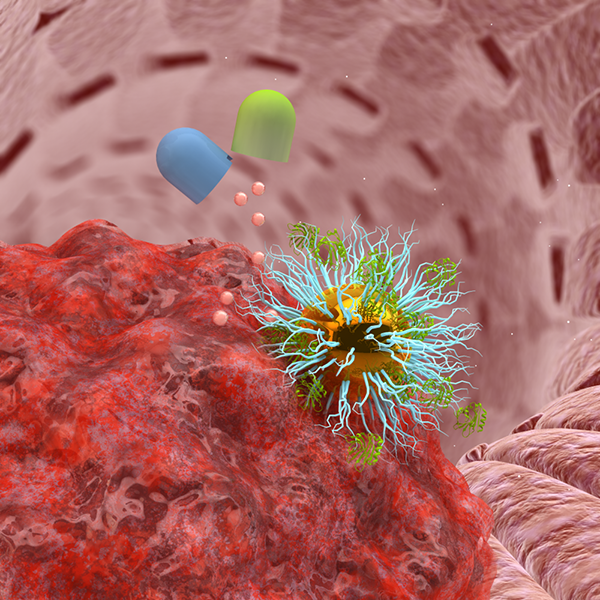Cancer Biology Program
 The holy grail of cancer research is therapy that can specifically target cancer cells while avoiding damaging side effects. Dr. McCormick has taken a new approach to this goal by capitalizing on an unexpected resource: host-targeting proteins produced by pathogenic bacteria. She has made the surprising discovery that one of these proteins, SipA, from the bacterial pathogen Salmonella typhimurium, interacts with a broad spectrum of tumors, inhibiting the cellular mechanisms that allow cancer cells to develop resistance to chemotherapeutic drugs. By designing a targeted delivery model system based on SipA-therapy, a key goal is to combat cancer drug resistance by drastically improving the effectiveness of traditional treatments. This unconventional approach has the potential to be highly transformative, providing a platform to develop novel small, safe, and effective molecules that can deliver chemotherapeutic drugs into targeted cancer cells with unprecedented efficacy.
The holy grail of cancer research is therapy that can specifically target cancer cells while avoiding damaging side effects. Dr. McCormick has taken a new approach to this goal by capitalizing on an unexpected resource: host-targeting proteins produced by pathogenic bacteria. She has made the surprising discovery that one of these proteins, SipA, from the bacterial pathogen Salmonella typhimurium, interacts with a broad spectrum of tumors, inhibiting the cellular mechanisms that allow cancer cells to develop resistance to chemotherapeutic drugs. By designing a targeted delivery model system based on SipA-therapy, a key goal is to combat cancer drug resistance by drastically improving the effectiveness of traditional treatments. This unconventional approach has the potential to be highly transformative, providing a platform to develop novel small, safe, and effective molecules that can deliver chemotherapeutic drugs into targeted cancer cells with unprecedented efficacy.
Selected Publications:
- Siccardi D, Mumy KL, Wall DM, Bien JD, McCormick BA. Salmonella enterica serovar Typhimurium modulates P-glycoprotein in the intestinal epithelium. Am J Physiol Gastrointest Liver Physiol. 2008 Jun;294(6):G1392-400.
- Mercado-Lubo, R, Zhnag Y, Zhao L, Rossi K, Wu X, Zou Y, Castillo A, Leonard J, Bortell R, Greiner DL, Shultz LD, Han Gang, McCormick BA. A Salmonella nanoparticle mimic overcomes multidrug resistance in tumors. Nat Commun. 2016 Jul 25;7:12225.
- Mercado-Lubo, R and McCormick BA. Can a nanoparticle that mimics Salmonella effectively control tumor chemotherapy resistance? Nanomedicine (Lond). 2017 Apr;12(7):705-710. doi: 10.2217/nnm-2017-0005. Epub 2017 Mar 21.